Darling weathers Covid-19 storm, with priceless help
In the NSW far west, Wilcannia bleeds in the dust, an omen of Delta’s vicious strike in places that are already battling the odds.
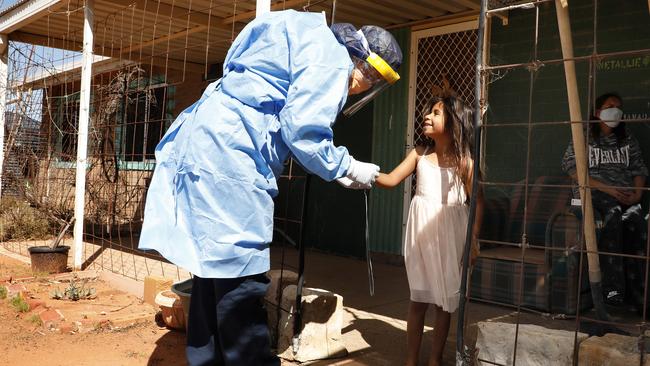
On the Darling, it hurts to see folks down with coronavirus.
Out in the NSW far west, Wilcannia bleeds in the dust, an omen of Delta’s vicious strike in places that are already battling the odds.
Almost 100 people have been infected with Covid-19, in a population that ebbs and flows from 600 to 700, depending on the duties of kinship and luck. This is Barkantji country, meaning people who belong to the river.
Now six months after welcome heavy rains in the north, the river is running. In the wake of billions of litres of water flowing past the town that was once a ferry hub for goods and people, here’s a trickle of good news. Wilcannia is not out of danger, but there is a steady stream of people in recovery from the virus, according to those who have been visiting the infected.
“We’ve been thrilled that, generally, the community in Wilcannia has been well,” CareFlight nurse and paramedic Melissa Price tells The Australian.
“There are a couple of people in hospital who are Covid positive, but they’re not in hospital for Covid-related problems,” she says after checking her news feed showing one in 10 infected people across the state end up in hospital.
“That’s not happening here. The vast majority of the town has been vaccinated with at least one shot, and they are probably a very good case study to suggest the vaccine is working.
“This was a very vulnerable community that was a concern, and they’re not sick.”
On Monday, it was confirmed a Covid-19 positive Aboriginal elder in her 70s, from Enngonia north of Bourke, died at Dubbo Base Hospital. She was unvaccinated and is the second Indigenous person to die in western NSW.
Ms Price has come from Port Stephens, more than 900km away, to be part of one of two teams that go door-to-door each day to check on the health of people who have tested positive to Covid-19 under the Hospital in the Home program.
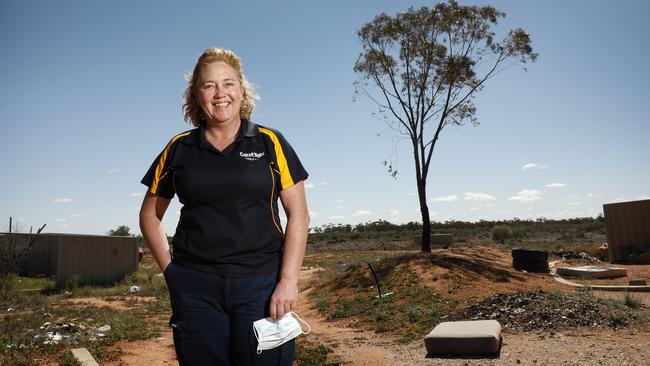
Over the past week, she has seen a dramatic change in mood among the 97 patients the team visits: from palpable high anxiety about their prospects to now realising the vaccine has saved them. Ms Price says there’s now a huge desire among patients to get their second dose as soon as they are out of isolation. Police are visible in their patrol cars and some drop off slabs of bottled water to homes bursting at the seams; one place had even pitched a tent for the only Covid-free family member.
On Monday, Ms Price and a NSW health official did their daily rounds of the town, checking in with “positive” households, some of which have as many as 13 residents under one roof.
Wilcannia sleeps in. The health team heads to the Warrawong caravan camp where people have been isolating. Each household has an oxygen saturation probe, which helps with early intervention. If a person’s reading is below 94 per cent they’re advised to call an ambulance, and if Ms Price thinks a person is sick she’ll send for the “ambos” to take the patient to hospital.
She takes pulses, observes patients for shortness of breath, records the oxygen “sats” – and listens to the bad jokes from the blokes stuck in iso.
She’s known in town by her first name now, and as the mother-of-three “Mel” arrives at a small cottage, with a well-kept garden, she’s greeted by Nicola Bates and six- year-old Lakiah.
All they can see of her in her PPE are her eyes, but photographer Chris Pavlich notes the warmth of the local mother and daughter’s connection with her.
“We’re seeing patients now who come out of their two-week isolation without requiring any interventions medically whatsoever,” Ms Price says, adding: “That’s amazing.”
Barkantji man Michael Kennedy was one of the first in the town to test positive. He was fully vaccinated, as was his partner Ingrid Bugmy. They isolated at home for 14 days with their children and on Father’s Day some of their liberty was restored.
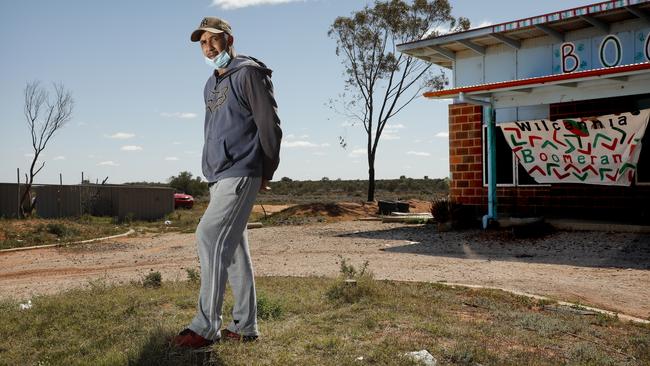
“The hardest part of isolation was the mental challenge,” he says. “But we were able to stay in touch with family and friends by phone and just check that everyone was doing well.”
Mr Kennedy says a lot of junk is still circling online about vaccination, but that most in the town have been won over, including many sceptics in his own family.
“A lot of people changed their minds because they can now see the value of vaccines in preventing death,” he says.
Yet only 14 per cent of eligible Indigenous Australians in the NSW far west and Orana sub-state area are fully vaccinated, compared with the statewide average of 41 per cent.
Ms Price says it’s been “stunning and a big relief” that the grim expectations the community had around the scale of illness and death has not eventuated, given that many of the people in town who tested positive for the virus had several comorbidities.
“There’s a lot of attention on Wilcannia, and it should be positive because I think they’ve been an awesome community for staying at home, staying well and being vaccinated,” she says.
There can be no triumphalism, of course, as it took authorities so long to respond, let alone to try to anticipate what might happen in a remote town where there is abysmal underlying health and overcrowding.
Community leader Mr Kennedy is upset about the lack of pandemic preparedness, last year and before the current NSW outbreak. He attended many planning meetings with officials and believes so much fear and pain could have been prevented.
Thirty motor homes are finally in place for some people to isolate in at the Victory caravan park, but it’s not a win yet for the slow-moving officials. Having promised to have the site operating by now, workers were still setting up the necessary services on Monday and the Covid-free folk of the river town have no idea who will be staying in those vans.
Better late than never.


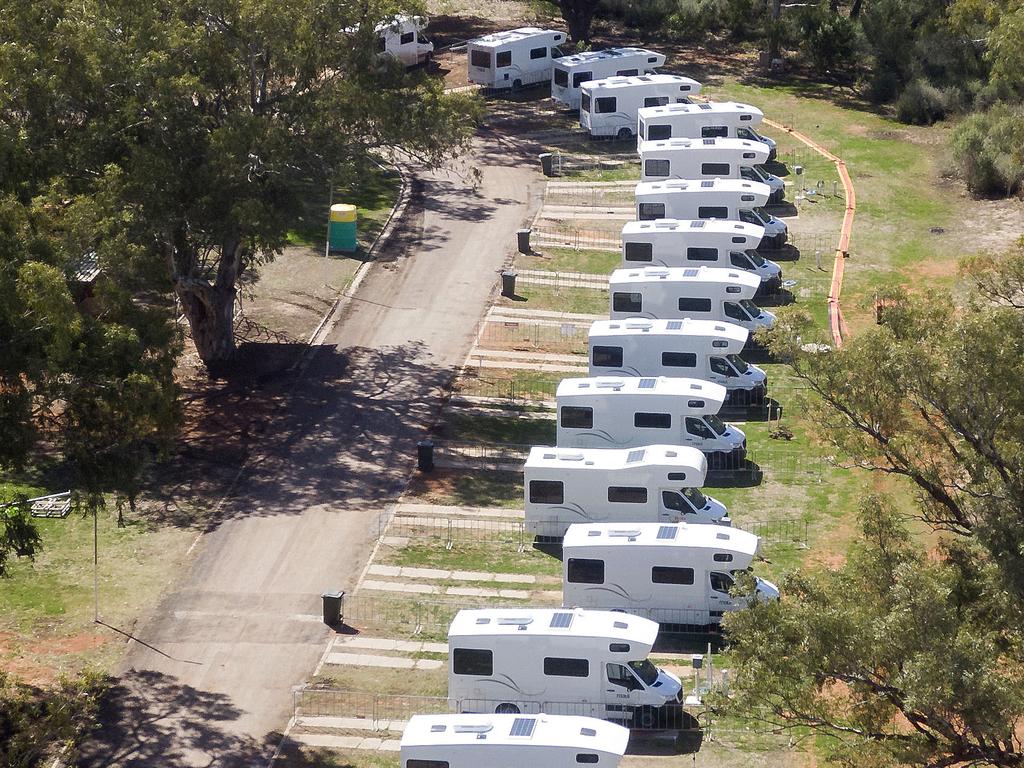

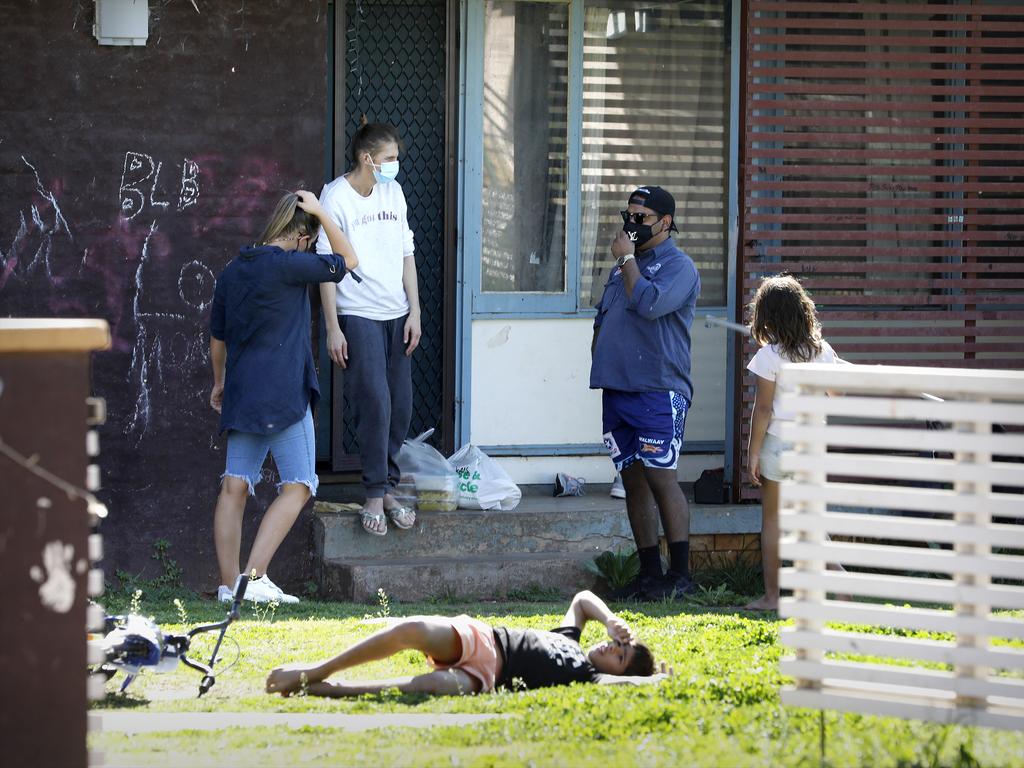
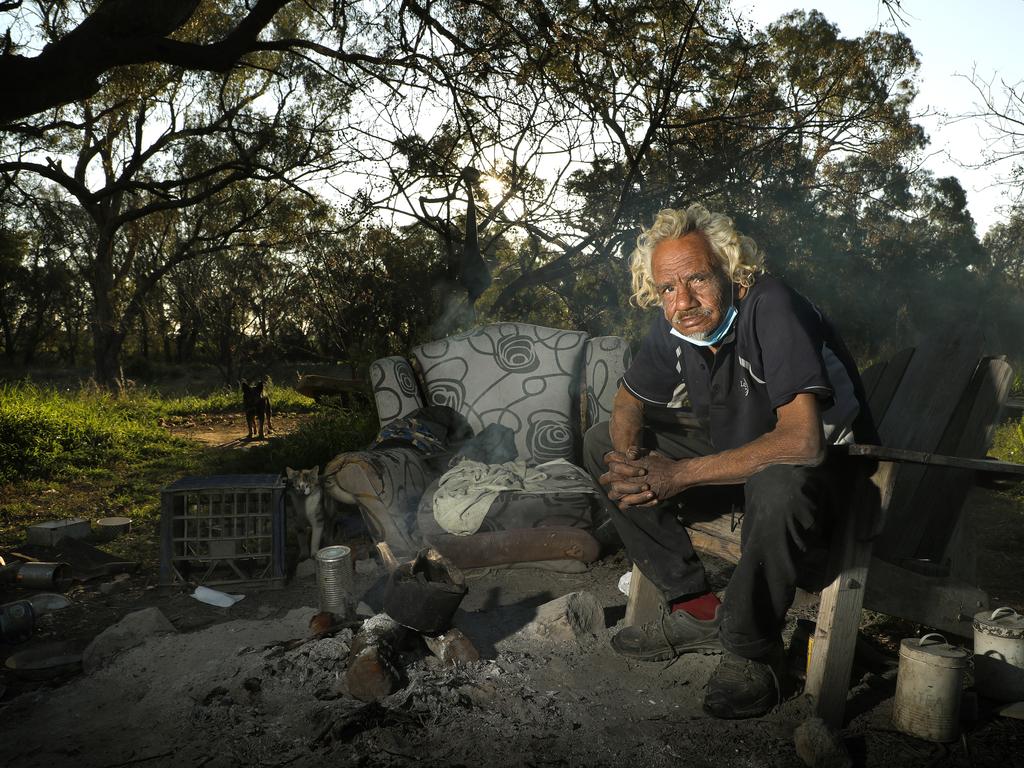
To join the conversation, please log in. Don't have an account? Register
Join the conversation, you are commenting as Logout